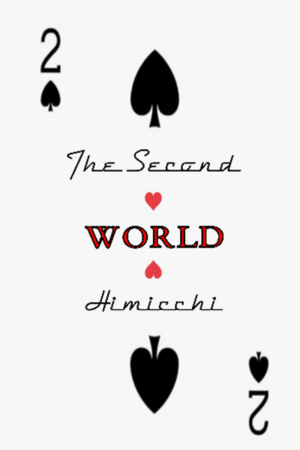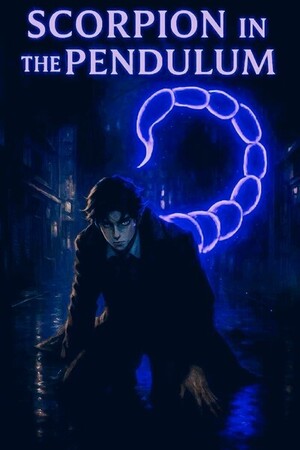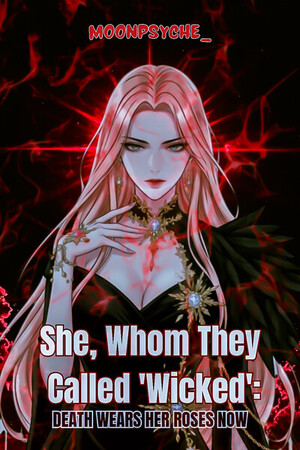Chapter 1:
Sevenday Eve
Fairy Life in the Second World
My mother grew up in this little treehouse before it was fully finished. Back then, she says, the little twig cabin had a gap where a stray leaf cut through one of the walls, and sometimes dew would drip through it onto the floor or a little wind would shake the whole building. She was my age when a feral cat gave chase to her and tore one of her two butterfly wings in half with its claw. It didn’t quite heal right, and now she had one wing that was all jagged and a good deal smaller than the other, and it gave her trouble when she tried to fly.
I ran my hand along the little indent in the wall’s new beeswax coating. It’s where there’d been a gap before, where the leaf used to stick through. A little of the twig frame could be seen within the windowsill. Outside it, the wide, grassy hills of the Chestnut Green, topped with a circle of the old Dwarven totem poles made from stone and ivory and glass. Their perfectly carved beards once marked the boundary of the city. Now they sat near its middle, separating Mount Addor’s metropolitan interior from the suburbs winding through thirteen foothills.
My mother’s wing was injured not a week before the most important day of her life, of anyone’s. The day she turned seven years old, her Sevenday, she dreamed back all the memories of her last life. And, whenever I could, I would ask her to tell me about her past life because it was my favorite story.
She always obliged, “I was a man in my last life, not a woman like I am now. And, I was a human, but in my world, we called them No-fins because in my world, there was a whole lot of water, huge oceans, and there were more mermaids than humans. So, I was a No-fin, and I was a fisherman living on a little island out in the Greensand Ocean. My grandfather lived with me because my parents passed away when I was very young, and even though he was never the kindest man, I always knew he loved me. So, we went out one day to go fishing, and a mermaid came up on my boat, and she was so sweet and kind that she and I fell in love. We could never have children of our own because she was a mermaid and I was a No-fin, but it wasn’t really any different to us. She would swim up to the edge of the shore, and I would go down just where the water was in the high tide, and I’d set out a piece of driftwood with a whole picnic on it with warm bread, and lobster, oh you’ve never had lobster but it’s sweet and warm and a little salty and you’d love it, Hana. Sometimes, when I brought my fish to other islands, I’d buy raisins, prunes, and dates to bring back. Tomatoes one time, and she didn’t really like tomatoes, so the next time I brought peaches instead, and she said it was the favorite thing she ever had. They can’t grow peaches underwater, you know?” And, I’d always swim away to the previous world with her, and try to imagine the face of Gwendolyn, that mermaid. Even when my mother drew her in a sketchbook, she looked totally different from what I’d imagined.
Mermaids were as huge as humans were, and they had no wings and no legs, so they could only swim. I hardly walked either. Fairies could fly, and anyone who might fly would avoid walking where they could. Even playing with my human or dwarvish friends, I would ride on their shoulders instead of walking if I ever grew tired of flying. I was the youngest in our group, and I hadn’t seen them in some weeks since the last of their Sevendays had come and gone.
First was Moxi, who celebrated her Sevenday a year ago. It had been a great, mighty swank as her mother, the oracle, called it. Moxi took to locking herself in the very top floor of the tower they lived in, and her relationship with the oracle decayed, or so the oracle said. She refused to speak to any of the other children, us all who didn’t have our Sevendays yet, and who hadn’t remembered our past lives. Once someone remembered, they were an adult, no matter how physically mature their body was.
Georgi had his four months ago, and he stopped attending school altogether. He was an adult now, and he could, after all. When I spoke to him, he seemed quite different. Georgi had been a loud fellow, always getting in trouble with the constable or even the mercenary police (also called The Toads). After remembering his past life, he was soft-spoken and philosophical, spending almost all his time between the library at the edge of the Chestnut Green and the one far deeper within the caverns of the adjacent Mount Addor. He had no time for me or any other children.
And my last friend had been Morton. He’d been a studious child and a bit of a crybaby. A month ago, he turned seven and woke up the next morning in the town jail. Morton had gotten so loud and drunk after remembering his past life that he had to be taken by the constable during his own Sevenday celebration. Now, he makes regular journeys to the county jail with cups of whisky or vodka or timberwine to blame.
I knew well and truly that my Sevenday was to be the best day of my life. I’d waited for it since I was two, and I’d made up a thousand different lives for myself that I might have had before. Maybe I had been a great hero who slew a dragon, but fell in battle after. Or, I’d been a grand princess who lived old and wise. A witch with such great magical acumen that it would carry over into this life as soon as I remembered it, and I’d wake up on the morning of my Sevenday able to do all kinds of magic tricks that were created in a different universe entirely.
The setting sun dyed the clouds blues and greens, but mostly pink over the city of Tinborough around the Chestnut Green. Sprouting from the caves of Mount Addor, Tinborough had been a dwarven settlement deep within the heart of the mountain less than a century ago. It was only the expanding trade routes south toward the Sapphire Capital that brought more and more to live around the mountain. Dwarves were always welcoming to those who wanted to live within the halls of the mountain itself, or to build their homes throughout the green foothills and rocky steppes. So, Tinborough itself crawled out of the mountain one neighborhood at a time until it was the make of a small city that snaked from deep inside the mountain’s bladder out to the edges of its wingspan.
I stepped just outside the treehouse and took a deep breath of the fresh air. It would be my Sevenday come midnight, and I’d have that great dream as soon as I was asleep. I walked down the treebranch past our front door, keeping an eye out for sparrows and squirrels and other such dangerous things to a fairy of three inches’ height, and I sat at the thinnest, most wobbly twig that sprouted from the branch, letting my feet rest against its half-formed, Autumn-orange leaf. Will this be so pretty tomorrow? I wondered.




Please sign in to leave a comment.